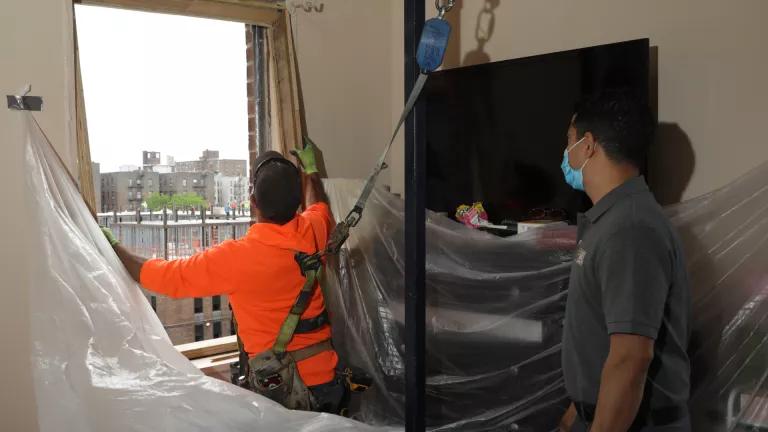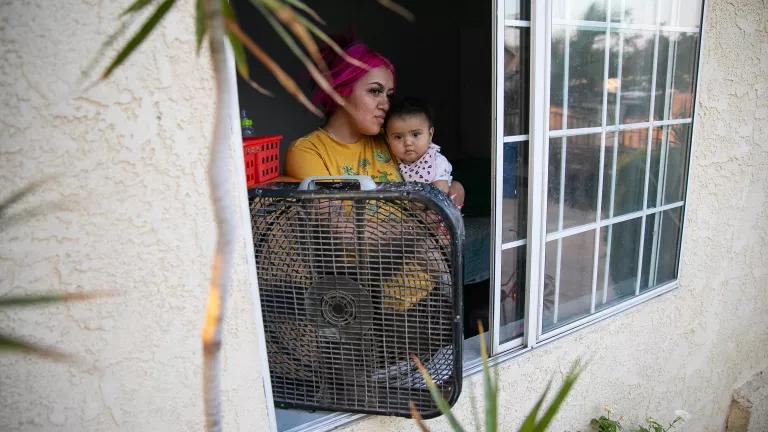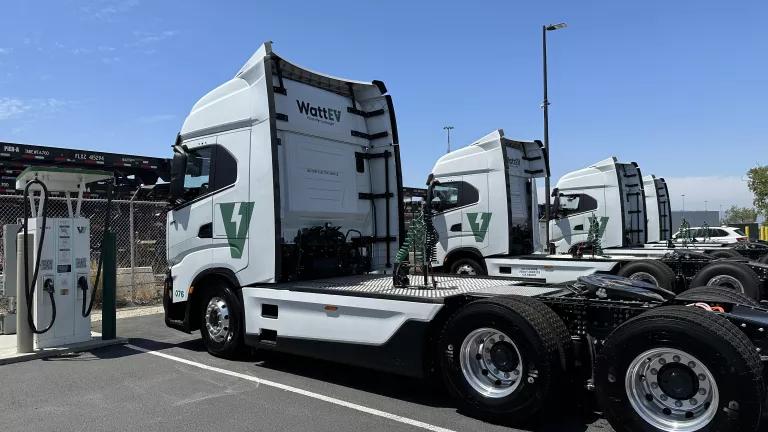Southern California's Air Agency to decide whether to regulate ports, or just let the ports "agree" to clean up
UPDATE: The AQMD Board voted today, Feb. 1, to adopt the Port Backstop Rule. They also voted not to do an agreement with the Ports. We applaud the AQMD Board for taking this important step to clean up our air.
Every few years, Southern California’s air agency (called the South Coast Air Quality Management District, or AQMD for short) develops its plan for the Los Angeles region to clean the air so it meets clean air standards. The AQMD adopted their plan last December, 2012, but decided to wait until early 2013 to decide whether it wanted to include one particular measure in the plan. The measure is called the Port Backstop Rule, and the AQMD is considering it at a hearing today, Friday, February 1.
What it would do is declare the Port of Los Angeles and the Port of Long Beach “indirect sources” of air pollution under the Clean Air Act, and require the ports to reduce emissions. Some might be surprised to hear that the ports have not yet been regulated by the AQMD; but now is a better time than never.
The Backstop Rule would require the ports to reduce their emissions to the levels the ports have already promised to reach via their Clean Air Action Plan. If the ports fail to reduce their pollution enough, then the AQMD would require them to come up with a plan to reduce their emissions to the needed levels.
NRDC, along with the Coalition for Clean Air and a long list of other environmental, environmental justice, and community groups, strongly support the AQMD adopting the Port Backstop Rule. We have been supporting this type of regulation for more than six years now. But the ports are fighting vigorously against this type of accountability.
The ports argue that they don’t need to be regulated since they have already done such a good job reducing their air pollution and they promise that they will continue to do so. They also argue that the AQMD does not have the legal authority to regulate them, and if AQMD tries to, then the ports will haul them into court and fight this to the end.
While we agree the ports have made significant progress reducing their air pollution, the reality is that they are still the largest source of pollution in the region. The ports still pose serious health threats to local communities, and make it very difficult to reduce smog in LA, our nation’s smog capital. AQMD finally regulating the ports is a great approach to making sure that the ports make good on the promises they have made. Indeed, it is the AQMD’s responsibility to make sure air pollution decreases enough to make LA’s air healthy, and they need the ports to reduce their emissions in order to meet this important, life saving goal. The AQMD already heavily regulates many other polluters in the region; why should the ports get a free pass?
The ports have proposed that instead of a regulation, the AQMD should enter into an agreement with the ports. The ports argue that the agreement would be enforceable, but the devil is in the details. We’re skeptical of this approach, and that it just distracts us from a better mechanism of a Port Backstop Rule.
Just like the AQMD and environmentalists’ criticisms of the agreement that the California Air Resources Board entered into with the railroads, we should also oppose this proposal. It is nothing more than a sour deal for people who breathe in the LA region. Polluters should not be able to enter into “agreements” to get to avoid being regulated. AQMD has the legal authority to regulate the ports, and they should use it. The stakes are too high, as our fellow Angelenos continue to die prematurely and get sick each day from our air pollution.



